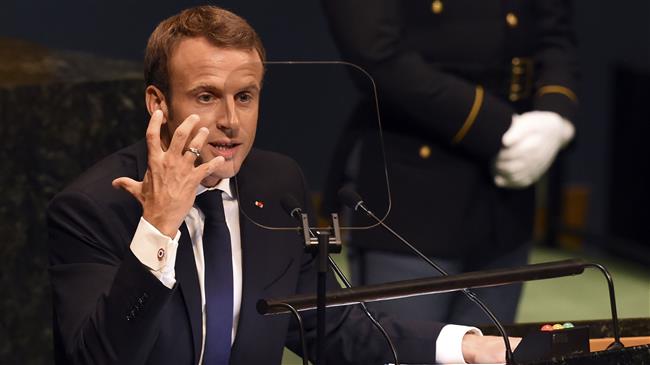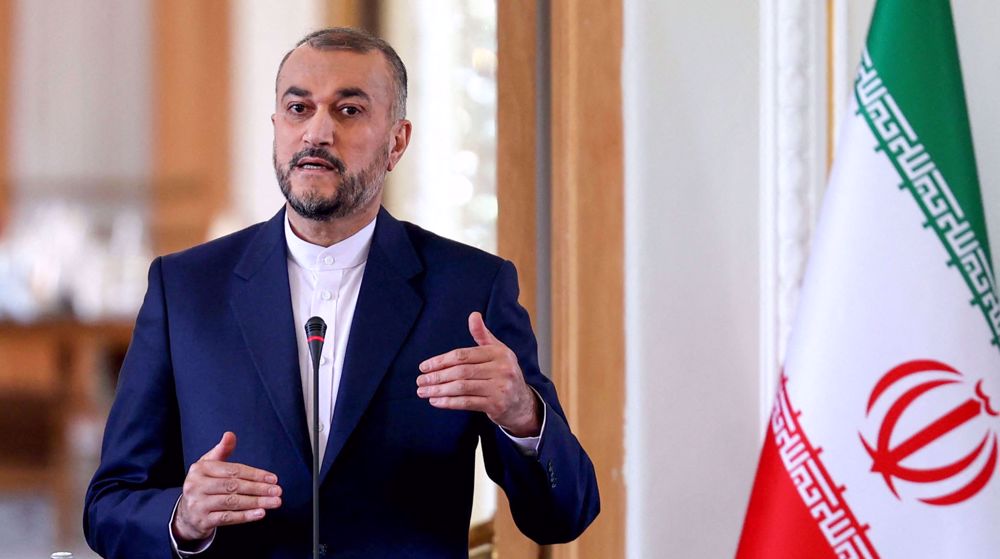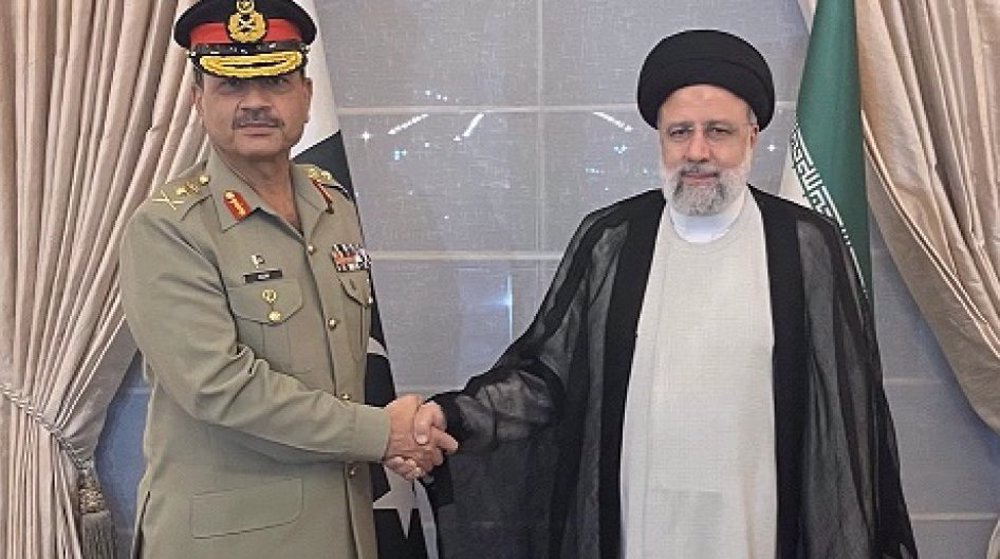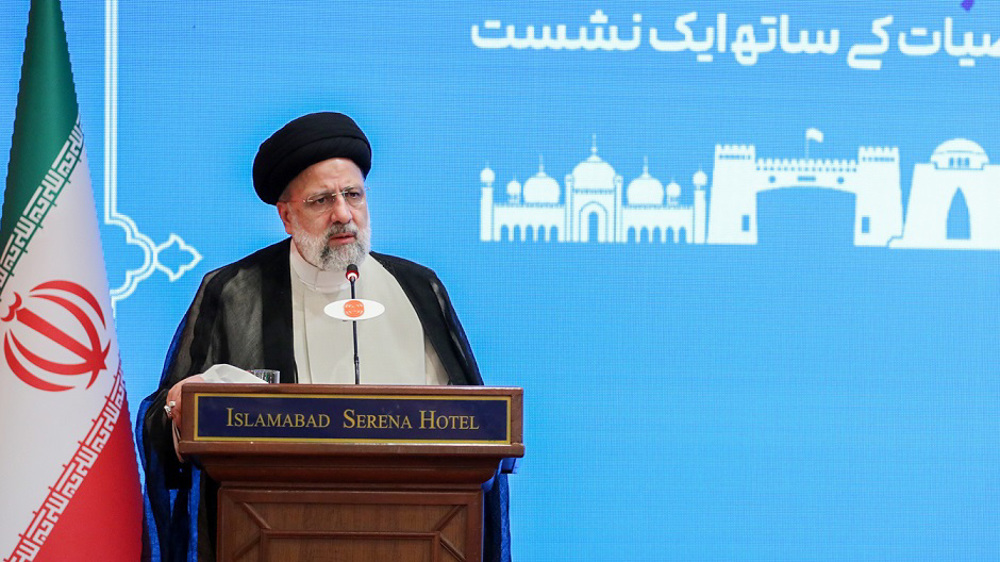France's Macron urges 'dialogue and multilateralism' on Iran
French President Emmanuel Macron has called for "dialogue and multilateralism" on Iran, shortly after his American counterpart promised hard-hitting sanctions against the Islamic Republic.
Speaking at the 73rd session of the United Nations General Assembly in New York on Tuesday, Macron credited the historic nuclear agreement, officially known as the Joint Comprehensive Plan of Action (JCPOA), reached between Iran and the P5+1 group of countries in 2015 despite US President Donald Trump's withdrawal from it.
"What will bring a real solution to the situation in Iran and what has already stabilized it? The law of the strongest? Pressure from only one side? No!" the French leader said.
In his second address to the General Assembly, Trump urged the world to isolate Iran, accusing it of sponsoring terrorism and sowing "chaos, death and destruction," in the Middle East.
"We ask all nations to isolate Iran's regime as long as its aggression continues," the US president said. "They do not respect their neighbors or borders or the sovereign rights of nations."
Trump announced in May that Washington was pulling out of the nuclear agreement which lifted nuclear-related sanctions against Tehran in exchange for restrictions on Tehran's nuclear program. The deal had been signed between Iran and the five permanent members of the UN Security Council -- the United States, Britain, France, Russia and China -- plus Germany in 2015.
The US administration reintroduced the previous sanctions while imposing new ones on the Islamic Republic. It also introduced punitive measures — known as secondary sanctions — against third countries doing business with Iran.
A first round of American sanctions took effect in August, targeting Iran's access to the US dollar, metals trading, coal, industrial software, and auto sector. A second round, forthcoming on November 4, will be targeting Iran’s oil sales and its Central Bank.
Read more:
- US pullout from nuclear deal jeopardizes regional, global security: Iran
- Iran complying with nuclear deal commitments: IAEA's Amano
- Iran implementing commitments under nuclear deal: Amano
- World needs to stand against US law-breaking behavior or pay high prices: Iran FM
Iranian President Hassan Rouhani late in August urged the remaining signatories to the 2015 nuclear agreement to act faster and in a more transparent way to preserve it after the US move to pull out of the agreement.
"Iran has fulfilled all its promises in the JCPOA and, taking into account the unilateral exit of America from this agreement, it [Iran] expects the other sides to speed up their plans to safeguard this agreement and make them more transparent," Rouhani said in a phone call to French President Emmanuel Macron.
Pointing to the ongoing crises in the Middle East, Macron further said, "As I was saying a year ago, today we should not aggravate regional tensions but rather through dialogue and multilateralism pursue a broader agenda."
Iran nuclear deal critical for international security: British foreign secretary
British Foreign Secretary Jeremy Hunt on Tuesday said the JCPOA plays a leading role in international security.
He pointed to a meeting of foreign ministers of Britain, Germany, France, Russia, China, Iran, and the EU High Representative on the sidelines of the General Assembly meeting on Monday, Hunt urged Iran to continue to comply with the its commitments under the JCPOA and expressed London's firm commitment to the deal.
"The UK remains committed to the Iran nuclear deal, which is critical for global security. We will continue to ensure the deal is upheld, and Iran must do the same," he said.
British Prime Minister Theresa May said on September 23 that Iran is in compliance with its commitments under the nuclear deal, stressing that the agreement should be kept alive.
"From what we see, we believe that it is doing that," May told CBS.
Israel prevents food convoys from reaching north of Gaza: UNRWA
NYPD arrests multitude of pro-Palestine students at NYU campus
Iran’s decisive response to Israel disrupted enemy’s equations: Hamas
Iran releases details of confiscated Israeli transit cargo
VIDEO | Press TV's news headlines
President Raeisi: Nothing will remain of Israel in case of another mistake
UN rights chief ‘horrified’ by mass grave reports at Gaza hospitals
Hezbollah says launched ‘deepest attack’ on Israel since start of Gaza war













 This makes it easy to access the Press TV website
This makes it easy to access the Press TV website